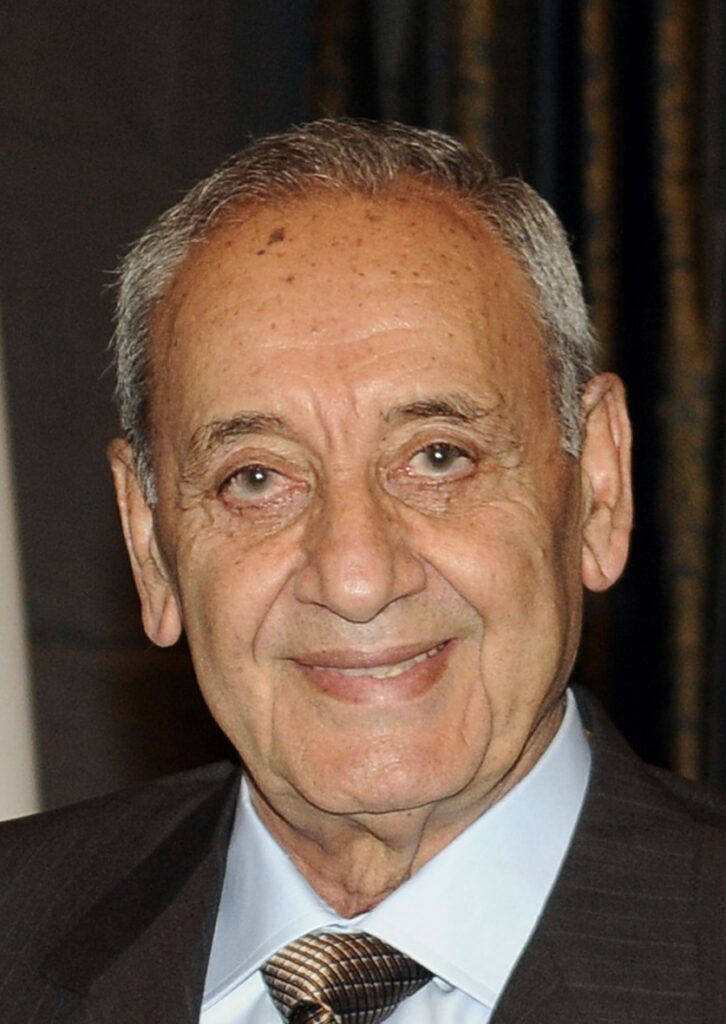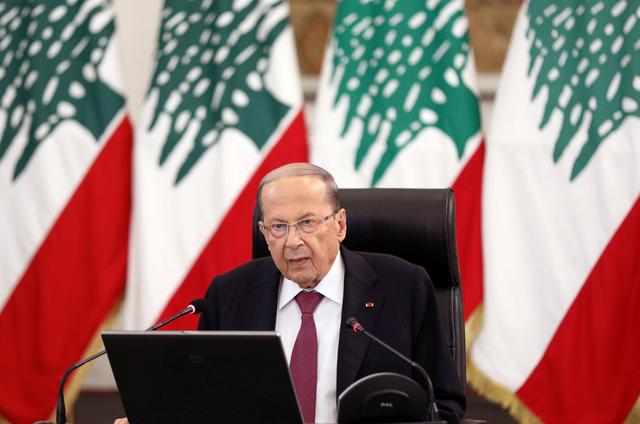BEIRUT — President Michel Aoun warned on Thursday of an “atmosphere of civil war” during recent unrest in Lebanon and what he described as attempts to stir up sectarian tensions as a financial crisis sweeps the country.
Aoun, a Maronite Christian, was speaking at a meeting that he said was called to protect civil peace, but which was boycotted by opponents, including Sunni Muslim leader Saad al-Hariri and other ex-prime ministers, who said it is a waste of time.
The crisis is seen as the biggest threat to Lebanon’s stability since the 1975-90 civil war. A 75 percent decline in the Lebanese pound since October has been reflected in soaring prices and savers have been frozen out of their deposits.
Aoun’s comments referred partly to confrontations in Beirut earlier this month that opened old sectarian faultlines between Shi’a Muslims and Christians and between Shi’as and Sunnis.
“We touched the atmosphere of civil war in a worrying way,” Aoun said. “Movements replete with sectarian tensions were launched in a suspicious manner.”
Lebanon’s sectarian power-sharing system requires the president to be a Maronite, the prime minister to be a Sunni and the parliament speaker to be a Shi’a.
Prime Minister Hassan Diab, appointed in January with backing from Aoun, the powerful Iranian-backed Shi’a group Hezbollah and Parliament Speaker Nabih Berri, said the exchange rate was the only concern for the Lebanese.
“Lebanese want the central bank to control the dollar exchange rate vis-à-vis the Lebanese pound and to preserve the value of their salaries and savings,” he told the meeting.
Former prime ministers Hariri, Najib Mikati and Tammam Salam said the real threat to stability may come from the deteriorating economic and financial situation and “this cannot be solved by large meetings that do not have a clear agenda.”

Lebanese Parliament Speaker Nabih Berri
As Lebanese pound crumbles, Berri urges “financial state of emergency”
On Wednesday, Berri urged Lebanon’s government, central bank and commercial banks to declare a “financial state of emergency” and review all steps to protect the collapsing currency.
He also said Lebanon would not get a penny from the International Monetary Fund (IMF) or any donor state unless it carries out reforms, at the forefront of them accelerating an overhaul of its loss-making electricity sector.
The Lebanese pound has lost about 75 percent of its value since October, when long-brewing economic troubles mushroomed into a financial crisis regarded ass the biggest threat to Lebanon since its 1975-1990 civil war.
The pound, officially pegged at 1,507.5 to the dollar since 1997, traded at 6,300/6,500 on the parallel market Wednesday, a market participant said, weaker than levels of 6,000/6,200 cited by market participants on Tuesday.
With dollars scarce, the financial meltdown has frozen savers out of their deposits and forced up prices in the import-dependent economy.
“It is unacceptable that Lebanese be made hostages of black markets in currency, food, medicine and fuel,” Berri said during an emergency meeting of the Amal Movement, the political party that he leads.
Donor states that have provided Lebanon with aid in the past have said it will not receive any until it undertakes reforms to fix the state corruption and waste that are at the root of the crisis. Lebanon began talks with the IMF in May.
“Any Lebanese official will be mistaken if he believes the IMF or any state or donor party can give us one penny of aid if we do not implement reforms,” Berri said.
“Frankly, the world and international community believes Lebanon is a bottomless basket, and before this bottom is closed there will be no aid.”






Leave a Reply